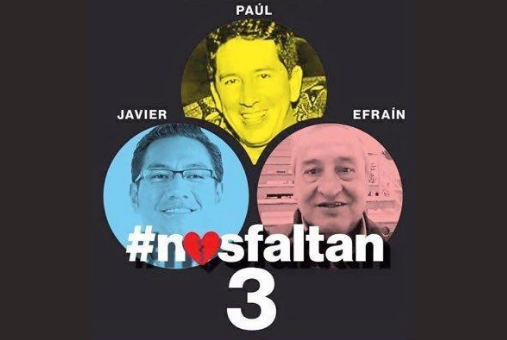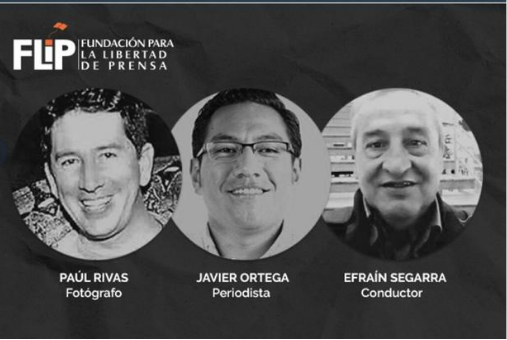The Attorney General’s Office of Ecuador announced the capture of “Cherry,” who they said is the alleged material author of the abduction of the journalistic team from Ecuadorian newspaper El Comercio.
The repression and fear that the government of President Rafael Correa (2007 - 2017) imposed on the Ecuadorian media and journalists is apparently coming to an end after the arrival of Lenin Moreno last year,according to a recent report by the Committee for the Protection of Journalists (CPJ).
Colombian authorities announced the capture of the alleged fourth in command for the Oliver Sinisterra Front who they said was responsible for the custody of the Ecuadorian journalists who were abducted in March, and later killed.

The Colombian and Ecuadoran governments confirmed that three bodies found in Tumaco, Colombia belong to the El Comercio reporting team that was abducted on March 26 while reporting in the border region.

Colombian President Juan Manuel Santos posted on Twitter on June 21 that three bodies were found that could belong to a team of journalists and their driver who worked for Ecuadoran newspaper El Comercio and were reportedly killed in a border region by a dissident group of the FARC.

Three bodies that could belong to two Ecuadoran journalists and a driver for newspaper El Comercio were found in Colombia, 88 days after the team was abducted near the border of the two countries.
"With deep regret, I regret to report that the assassination of our compatriots has been confirmed," Ecuadorian President Lenín Moreno wrote on his Twitter account on the early afternoon of Friday, April 13. The president publicly confirmed the death of the two journalists and the driver from newspaper El Comercio, who were kidnapped at the end of March by a dissident group of the FARC.
Two journalists with the Ecuadorian newspaper El Comercio and their driver, who authorities say were abducted on March 26 by FARC dissident groups, were shown alive in a video broadcast on Colombian station RCN. The abduction took place close to a military checkpoint in Mataje, in the Ecuadorian province of Esmeraldas that borders the Colombian border, according to El Comercio.
A team of three journalists from Ecuadoran newspaper El Comercio were abducted on March 26 in northern Ecuador in Mataje in the province of Esmeraldas near the country’s border with Colombia.
Ecuadoran Secretary of Communication Andrés Michelena confirmed that new President Lenin Moreno’s government is not contributing economically to multi-state owned cable news channel Telesur, newspaper La Hora reported.
The United Nations Educational, Scientific and Cultural Organization (UNESCO) has recommended the creation of a communications monitoring council independent of political and commercial interests in Ecuador, reported El Universo.
Journalist and political activist Fernando Villavicencio and former congressman Cléver Jiménez, who were prosecuted criminally at the beginning of 2014 after being taken to court by then-Ecuadoran president Rafael Correa as a result of a journalistic investigation, were declared innocent on Feb. 22 by the Criminal Court of the National Court of Justice.